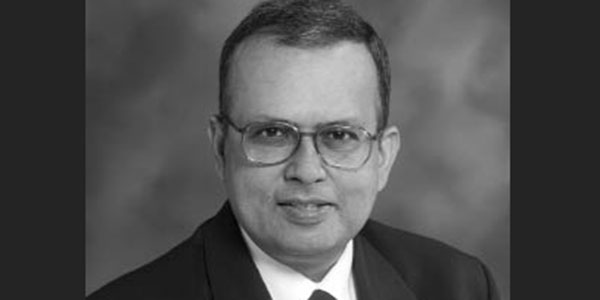
Amar Gupta, a visiting scientist at the Massachusetts Institute of Technology and a management and technology professor at the University of Arizona whose focus is on linking technology and entrepreneurship, will be the dean of Pace University”™s Seidenberg School of Computer Science and Information Systems effective Aug. 15. Gupta has also served as an adviser to the United Nations and World Bank.
Gupta said the locations of Pace, in Westchester and Manhattan, make it uniquely suited to his work. “There”™s a proximity to a number of good companies, like IBM, and the chance to develop closer relationships with businesses to find out their needs and train students to meet those needs, to produce the skills and talent that will help them,” said Gupta. “I want to see more joint efforts involving business, government agencies and universities.”
Gupta said dual-degree programs are more important than ever today. “In the old days there were clear demarcations between people in health care, law and information systems,” he said. “But as an example, in the case of law, today there are issues related to law from information technology and information technology plays a growing role in how legal processes are conducted today.”
Health care is one area Gupta pointed to, knowledge of which, along with expertise in computer science, could enable students to be “the change agents of tomorrow.” At the University of Arizona, he developed what has come to be known in academic circles as the 24-Hour Knowledge Factory, a system of working whereby teams in different time zones work on a project during their work day. “When you come back to your project, you feel as if a magic fairy has done work for you while you were asleep,” said Gupta. “It”™s like a relay race.”
He talked about how this might be applied to health care. “If an accident takes place at night in the U.S., X-rays can be taken somewhere nearby but read by someone working daytime hours in another country. Or in Australia, in a similar situation, it comes to us for a doctor here to see,” he said. Technology makes this possible, he said, and eliminates the need for shift work, which has been linked to health problems.
This system of working can be applied to many different types of situations, he said, and “allows a project to be completed more quickly. Also, there is an international feel to what is developed and, depending on what the project is, it will be of greater interest to potential buyers around the world.”
Gupta also developed technology, on which he holds a patent, to allow for precise readings of handwritten information on bank checks. He said it was only widely accepted after 9-11 when planes were grounded and checks could not be processed the way they had been for many years.
Then there is his advisory work. For the World Health Organization, he helped set U.S. guidelines on health infomatics ”“”“ information relating to health care and the computerization of it. In the 1980s he worked with the World Bank, in one instance helping develop a financial infrastructure for a Caribbean country that had experienced a lot of bank failures.
His work with major corporations in the early days of personal computers produced some interesting reactions. He recalled that when meeting with executives at IBM and encouraging them to develop their own PC after Apple had come out with its computer, one half-joking response was, “ ”˜We”™re not in the toy computer business.”™ But very soon after that, they came out with their own PC,” said Gupta.
Just as Apple and other PCs brought computerization to the average person, Gupta wants to bring education in computer science to everyone on campus. “My goal is for every student at Pace to take at least one course in computer science.”
















